Search Results
Showing results 121 to 140 of 282
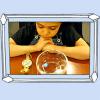
Create a Compass
Source Institutions
In this activity, learners use simple materials to build their own compass.

Go with the Flow
Source Institutions
Learners draw comic-style pictures to show the water cycle. From a starting picture, one learner draws what happens to the water in the next panel, then passes the comic strip to another learner.
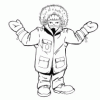
Locating a Point
Source Institutions
In this activity, learners work in teams to simulate the process used by Global Positioning Systems (GPS) to determine the location of a fallen meteorite in Antarctica.

Light of the Moon
Source Institutions
Learners model the Sun-Earth-Moon system to show what causes the Moon's appearance to change when viewed from the Earth.
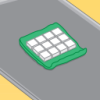
Water "Digs" It!
Source Institutions
In this activity, learners investigate soil erosion. Learners set up a simulation to observe how water can change the land and move nutrients from one place to another.

The Best Dam Simulation Ever
Source Institutions
This online simulation game explores the different consequences of water levels on the Columbia River in the Pacific Northwest.
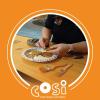
Cookie Paleontology
Source Institutions
In this activity, learners will explore paleontology and archaeology. They will learn about technique as they excavate raisins and chocolate chips from cookies.
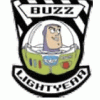
Buzz Lightyear Connect It!: Flight Path Activity
Source Institutions
In this activity, "space cadets" (learners) use writing and sequencing skills in addition to directional words/ordered pairs to guide Buzz Lightyear (from the movie "Toy Story") through a grid to reac

Globe at Night
Source Institutions
In this international citizen science activity, learners measure their night sky brightness and submit their observations into an online database.

Solar Spin
Source Institutions
A group of learners models the Sun shining on the Earth. By rotating the Earth, they demonstrate how the Sun only shines on a portion of the Earth at a time.
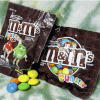
What's the Difference between Weather and Climate?
Source Institutions
In this interactive and informative group activity, learners use packages of M&M's to illustrate the difference between weather and climate.
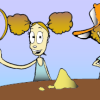
Detectives de arena
Source Institutions
¡En esta tira cómica, Mateo y Cientina son detectives! Ellos usan sus destrezas investigativas para identificar de dónde provinieron algunas muestras de arena.

Wetland Filter Model
Source Institutions
In this quick activity (located on page 2 of the PDF under GPS Wetlands Activity), learners will model how wetlands act as natural filters for the environment.

Black Holes: No Escape
Source Institutions
This fun and simple hands-on astronomy activity lets learners experiment with marbles and weights to discover some basics about gravity and black holes.

Animal Guess Who
Source Institutions
In this game, learners take turns guessing toy animals from around their house based on the toy's characteristics.
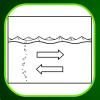
Current Events
Source Institutions
Learners model the ocean currents that carry hot water from the tropics to northern latitudes.
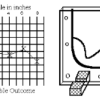
Topographic Investigation: Map an Underwater Surface
Source Institutions
In this activity, learners create a map of a hidden surface using a "sounding stick" -- a technique similar to how underwater maps were once made.
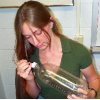
If Hot Air Rises, Why is it Cold in the Mountains?
Source Institutions
This demonstration/activity helps learners understand why higher elevations are not always warm simply because "hot air rises." Learners use a tire pump to increase the pressure and temperature inside
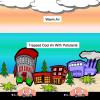
Turning the Air Upside Down: Convection Current Model
Learners see convection currents in action in this highly visual demonstration. Sealed bags of colored hot or cold water are immersed in tanks of water.

Play Dough Moon Phases
Source Institutions
In this activity, young learners will learn about moon phases using materials found at home. This activity is adapted using play dough and cups to avoid food allergens and waste.
